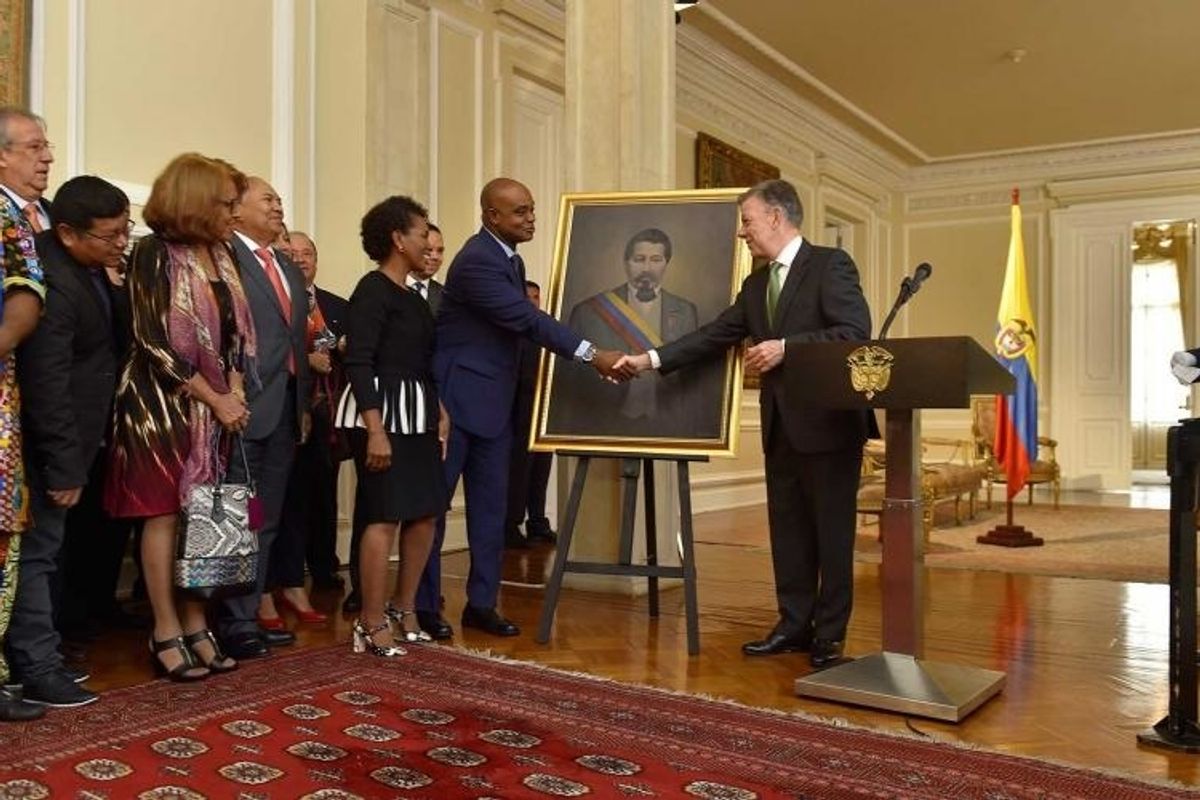Colombia Finally Recognizes Its First and Only Black President, Juan José Nieto Gil
Juan José Nieto Gil's presidency was erased from history on account of his race, but his legacy is finally being recognized.

This August, OkayAfrica shines a light on the connections between Africa and the Latin-American world. Whether it's the music, politics or intellectual traditions, Africans have long been at the forefront of Latino culture, but they haven't always gotten the recognition. We explore the history of Afro-Latino identity and its connection to the motherland.
Afro-Colombians account for around 5 million of Colombia's population. Still, black people in the nation are widely marginalized and underrepresented in political life. It's been this way throughout history, and nothing makes this reality more clear than the story of Colombia's first black president, Juan José Nieto Gil who, despite the odds, went on to lead the country during one of it's most divided periods in history and fight for the abolishment of slavery. He's gone largely unheralded until now.
After centuries of being unrecognized for his contributions, the Colombian government has unveiled a portrait of the country's first and only black president in the presidential palace, following an extensive investigation carried out by veteran Colombian journalist, Gonzalo Guillén.
Guillén made a promise to his late friend, the Father of Colombian Sociology, Orlando Fals Borda, that he would see to it that the country's black president, be given his rightful place in the Nariño Presidential Palace, reports Colombian publication The City Paper Bogota. According to the outlet, Guillén first brought the matter to the public's attention when he published an article entitled "Obama was not the first black president of the Americas. The title rightfully belongs to Juan José Nieto Gil," after Barack Obama won his presidency in the United States in 2008.
Prior to the efforts of Guillén and Borda, Nieto Gil's legacy as the first Afro-Colombian to hold political office had been virtually erased from Colombian history, in fact when an original portrait of him from the 19th century was first discovered in a basement, in 1866 it was whitewashed and his skin was made to appear white. "No one wanted the original painting. It was found in a basement, piled up with junk and rotting," Guillén tells The City Paper Bogota. The portrait was rediscovered by Borda in the 1970s and the true color of Nieto Gil's skin resurfaced. Even then, some still attempted to deny his African ancestry.
In 2008, an investigation led by Guillén confirmed Nieto Gil's status as Colombia's—then known as the United Provinces of New Granada—42nd president. Nieto Gil served as the country's leader from January 25 to July 18, 1861. He ruled during a politically divisive periods and worked as a novelist and geographer, who advocated for the abolishment of slavery.
The Colombian government held their own investigation into Nieto Gil, following a 2014 petition from Guillén.
On August 2, Colombia's former president Juan Manuel Santos unveiled a replica of the original portrait in the presidential palace with leaders from the Afro-Colombian community in attendance. After centuries of intentional erasure, the country's first and only black leader finally received his rightful recognition. While it's a major step in the right direction, the act doesn't erase Colombia's negative history with its large black population.
The prolonged recognition of Nieto Gil's contribution to Colombian history, highlights the ongoing struggle for Afro-Latino rights and representation in Colombia and beyond.
During the month of August, OkayAfrica is exploring Afro-Latino identity and highlighting the stories and experiences of Afro-Latinos throughout the diaspora, keep up with more of out stories here - Afro Latino

